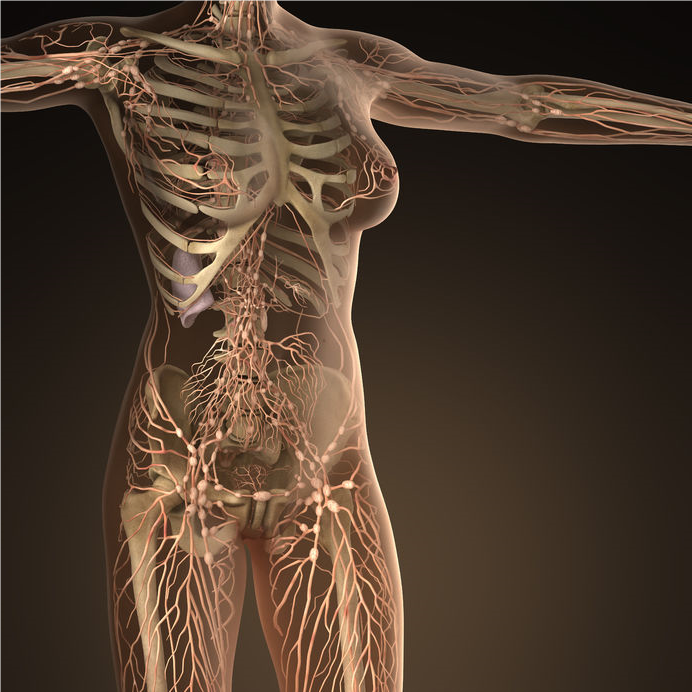Your lymphatic system is vast. Like the blood circulatory system, the network of lymph vessels serves almost every cell in your entire body.
Strung along those vessels – like pearls knotted on a string – are lymph nodes, which act as a kind of filter. You can sometimes feel the nodes under your arm or in your neck when you’re feeling unwell. As lymphatic fluid percolates through the nodes it becomes ‘cleaner’, as toxins and other impurities are removed.
While your heart sits at the centre of your cardiovascular system, your lymphatic system has no central pump. Instead it relies on muscle movement, deep breathing and, sometimes, manual manipulation (or via a lymphatic drainage machine like Body Ballancer®) to move the fluid.
If your lymphatic system gets blocked or overrun due to illness, surgery, toxic overload or lack of activity, lymph fluid can build up. That’s when you get some of the problems mentioned earlier, like swelling, cellulite, joint pain and illness.



